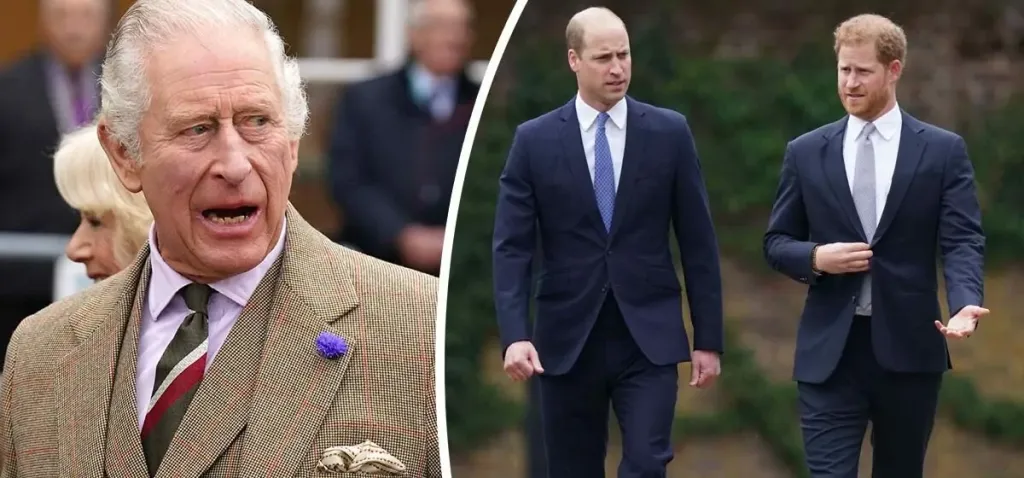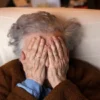The majority of people living in the UK had never lived under another monarch than Queen Elizabeth II up until recently.
King Charles ascended the throne after his mother’s passing, and it’s he who will oversee what will surely be a transitional time for the British monarchy. After all, several royal households across Europe have been slimmed down of late, and rumors have insisted that Charles wants to trim the excess in his own family, in so far as royal pomp and titles are concerned.
Time will tell if a modernization of the British Royal Family will take place, and indeed what any such modernization might look like. According to speculation, though Charles may have some serious issues to deal with in the very near future.
A new report has claimed that the members of the Royal Family are engaging less and less with the public, which in the end, could have a direct, detrimental effect on their importance. The alarming prediction says the monarchy might even collapse if King Charles doesn’t get help.
That, however, doesn’t seem to be the only significant issue, as one royal expert is also now claiming that there are eight simple words that could destroy King Charles’ entire reign.
The British monarchy goes back a thousand years. For the past seven decades, Queen Elizabeth II was its proud, stoic, and iconic mother, adored by all those who consider themselves pro-monarchy.
King Charles finally ascended the British throne when his mother passed away last year, but his task might be one of the biggest challenges any monarch has seen for a very long time.
Protests against the monarchy and King Charles have become a common occurrence during royal engagements. It makes sense to assume that we will witness more at Charles’s coronation on May 6.
Now, the pros and cons of the monarchy have been debated in many countries for many years. Some argue that a royal family boosts national unity, and if they are popular then why take them away? Others claim monarchies are obsolete establishments, costing taxpayers too much money to justify their continued existence.
When Queen Elizabeth passed away, fresh debate about British monarchy’s relevance reared its head. As Newsweek reported in a 2021 YouGov study, 41 percent of 18 to 24 year olds preferred the idea of an elected head of state to a monarch.
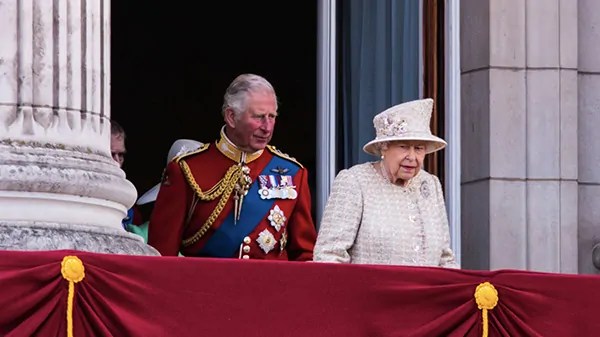
Naturally, King Charles and the rest of the British Royal Family have an enormous task ahead in modernizing the monarchy and ensuring its relevance in coming years. The UK looks vastly different today compared to when Queen Elizabeth II ascended the throne in 1952 – for one, it is now a multi-ethnic and multi-faith country.
King Charles –the future of the British monarchy
With King Charles now taking on the job – no monarch-to-be in history waited longer than him – he’s seen in some quarters as a character who embodies the much-needed modernization of the monarchy. For example, he was the first monarch not to be home-schooled, as well as the first to earn a university degree.
During his life, he’s been praised for his advocacy of environmental movements and his work to help improve young people’s lives in under-privileged communities.
In a recent piece for Variety, royal expert Katie Nicholl wrote that, according to one of her sources, the passing of Prince Philip in April 2021 “sharpened the focus on the future” for then-Prince Charles and Prince William. The father-son duo is focused on modernizing the monarchy. William, in particular, is said to consider this of the utmost importance.
“They are absolutely on the same page, in fact they are closer now than they have ever been,” a family friend told Nicholl. “They speak almost every day and they have a very loving and genuine connection.”
Nicholl added: “They believe in the monarchy, that it has a genuine purpose and that it has a future. They recognize that it has to modernize and that there will be changes in the future when the Queen’s reign comes to a close.”
She concluded: “William knows that the monarchy has to modernize in order to survive. He plans to continue his grandmother’s legacy when it is his time on the throne, just in his own way.”
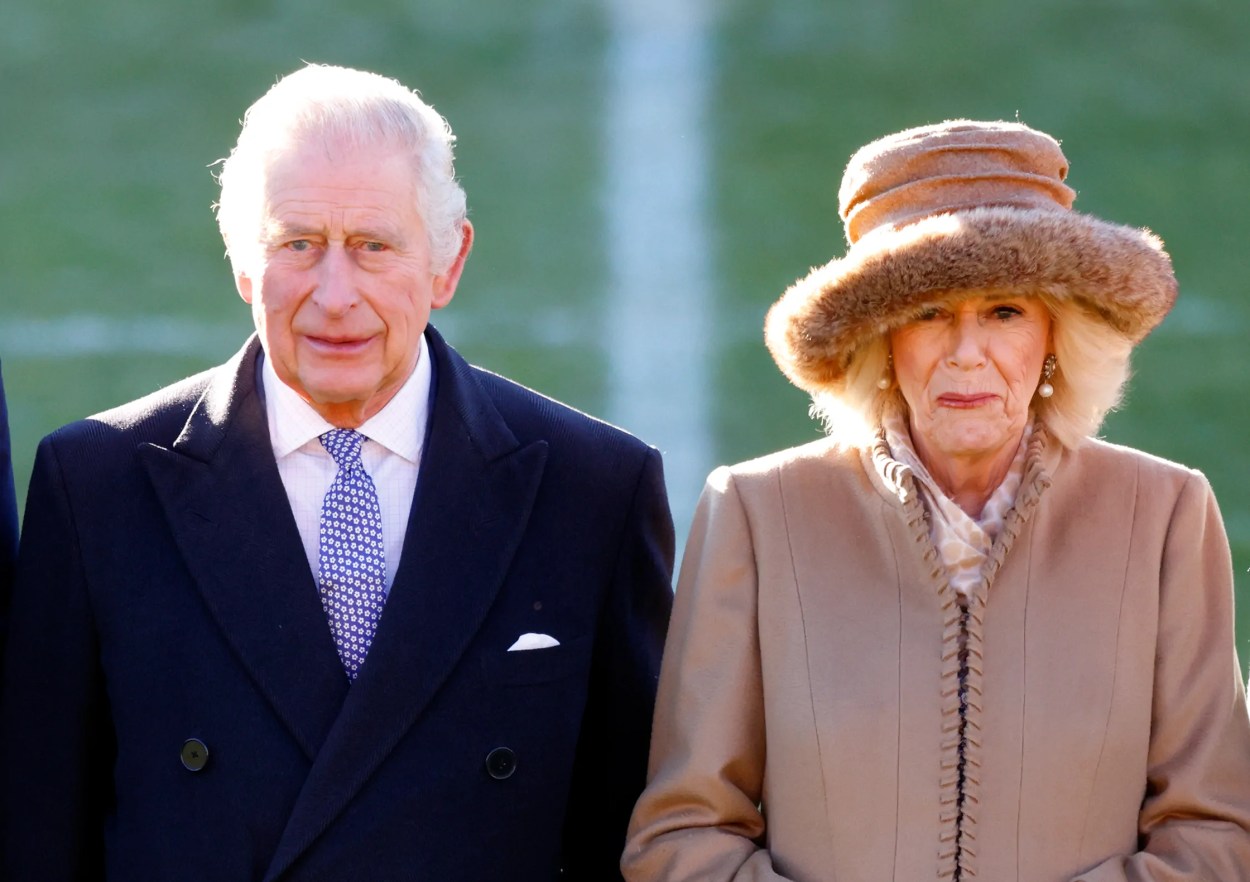
The Royal Family has seen significant changes in the last few years. The Queen’s passing, of course, sparked a huge transition, but the additional fact that Prince Harry and Meghan Markle left the royal household meant there has been fewer senior royals to attend duties and engagements.
Eight words can “bring down” King Charles’ reign, according to royal lexpert
A new report has confirmed that the royals are attending fewer engagements compared to previous years. According to one expert, that in itself could lead to the “collapse” of the monarchy as we know it, but King Charles has another, more dire, problem he needs to handle.
According to royal expert Daniela Elser, eight words could be enough to “bring” down King Charles. In a piece at news.com.au, she explained that there are other members of the Royal Family who could pose an existential threat to the Firm’s health, as well as the new monarch’s reign.
The “idiot relatives,” Elser claims, are a “dangerous issue” that has “been left to fester.” More specifically, she believes Prince Andrew and Prince Harry could pose the biggest threat to Charles.
“So long as the eight words ‘The Duke of York’ and ‘The Duke of Sussex’ appear on the royal website as Counsellors of State, His Majesty is putting his reign – and the whole palace shebang – in jeopardy,” Elser said.
“[Andrew and Harry] are both a seemingly never ending font of trouble for the monarch yet both remain part of the royal fabric,” she continued.
Five people are currently Counsellors of State; Camilla, the Queen Consort; William, The Prince of Wales; Harry, The Duke of Sussex; Andrew, The Duke of York; and Princess Beatrice.
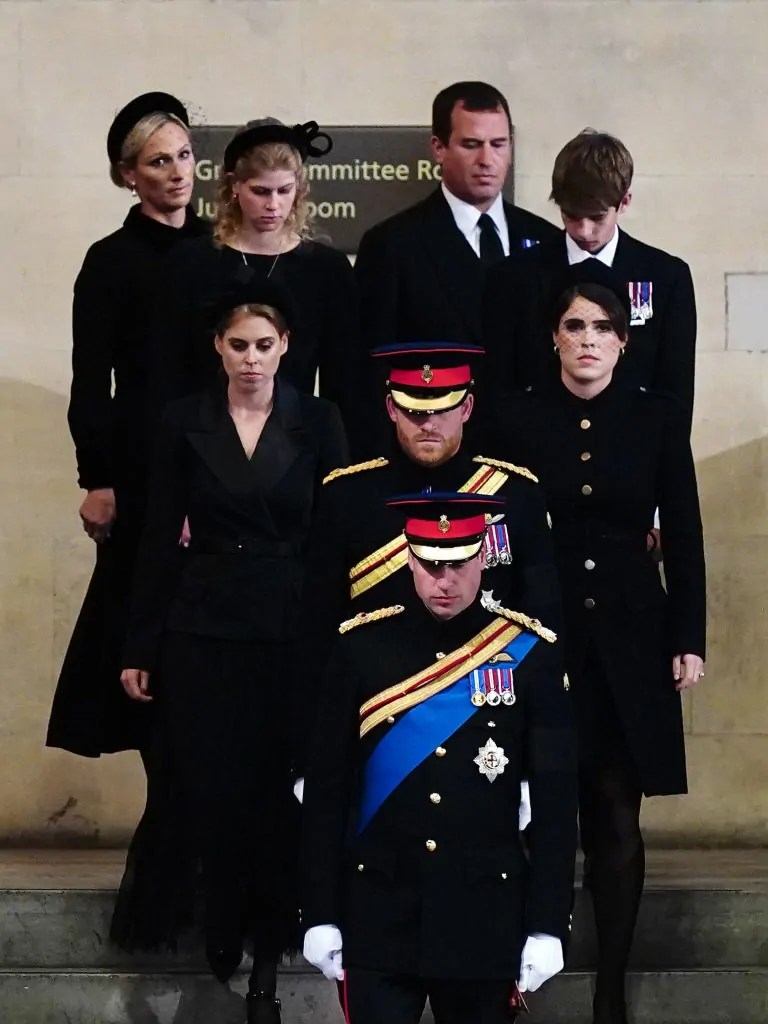
As per Buckingham Palace, Counsellors of State are “are authorised to carry out most of the official duties of the Sovereign, for example, attending Privy Council meetings, signing routine documents and receiving the credentials of new ambassadors to the United Kingdom.” However, they can’t, for example, select a new Prime Minister or be delegated assignments such as Commonwealth matters.
Problemtic Counsellors of State
The fact that three of them – Andrew, Harry, and Beatrice – are non-working members of the Royal Family is a problem, Daniela Elser argues.
“Having Harry, Andrew, and Beatrice as possible regal understudies makes about as much sense as letting Cheryl Cole deputize for the Home Secretary or Take That’s Gary Barlow getting to have a go as the governor of the Bank of England,” she wrote, expressing concern about them being able to fulfill their jobs.
“That they could even theoretically be tapped to open parliament, sign official documents or hold Privy Council meetings? Which is a long way of saying the king simply cannot afford for his brother and son and their ever-resilient egos and deep reservoirs of grievance to continue semi-regularly wreaking havoc.”
The coronation is only weeks away. On May 6, King Charles will be crowned king, and thousands of people will take to the streets of London to celebrate and get a glimpse of the new monarch.
It goes without saying that Charles will be the focal point on his big day. However, there have been other family members have been garnered attention in the months leading up to the coronation. Not least Harry and Meghan, and the question of whether or not they would be in attendance. It’s now been confirmed that Harry will travel to the UK, while Meghan will stay in the US with the couple’s children, Archie and Lilibet.
Though the rift between the Sussexes and the Royal Family continues to be a problem, there may be even bigger issues ahead.
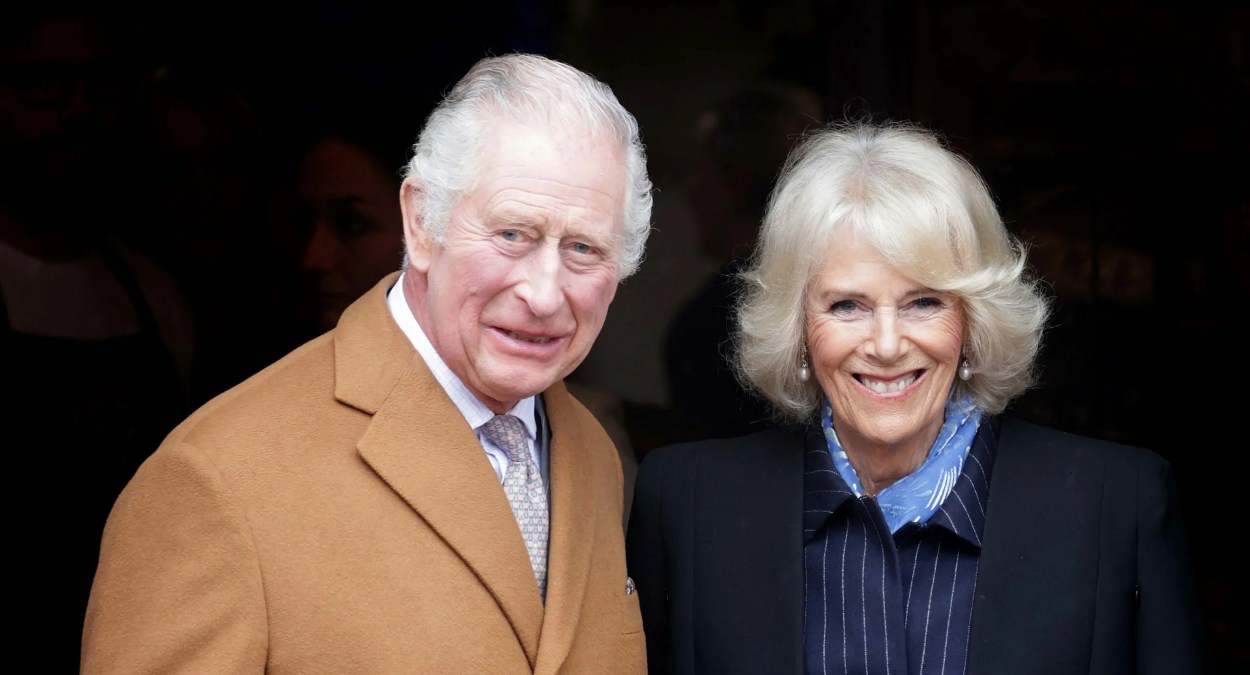
According to a new report from Civitas, published in the Express, the Royal Family is in danger of “abolishing itself by stealth” as they spend less and less time with the British public.
The royal family “on the brink of collapse,” new report states
King Charles has reportedly been warned that the monarchy itself is becoming too “distant” from its people, as the number of public engagements has drastically decreased.
The bombshell report raises concerns about the monarchy and King Charles’ mission moving forward. In 2014, there were a total of 3,338 royal engagements performed by the royals. Last year, there were only 2,079, a drop of 40 percent.
Of course, the deaths of Queen Elizabeth and Prince Philip, as well as the departure of Harry and Meghan and Prince Andrew stepping back from his duties, has had a big impact on the numbers.
“The Royal family as we know it is on the brink of collapse and risks abolishing itself by stealth if the King doesn’t take steps to boost visits that have fallen radically over the last decade,” the Civitas report’s author, Frank Young, said, as quoted in the Express.
“Through death, scandal, and resignation, the Royal family is increasingly reliant on a few hard-working members, with Charles, Anne, and Edward doing almost half the work…. We now need new working royals or will have to accept a Royal Family that is more distant from the people than at any time in the past 100 years.”
As several prominent royals now are classed as ‘non-working’, King Charles has been urged to appoint more “working royals” who can meet people across the country.

So who are the royals that work the hardest? According to the figures, based on data compiled by retired insurance broker Tim O’Donovan – who has recorded engagements listed in the Court Circular since 1979 – King Charles and Prince Anne are the hardest-working royals judging by engagements undertaken between 2012 and 2022.
King Charles warned against a “slimmed down” monarchy
Civias fears in its report that the number of royal engagements could shrink to “less than 1,000 a year” over the next decade.
King Charles was said to already favor a “slimmed down” Royal Family even before he took the throne. Frank Young, though, is actively warning the monarch against it.
“The King’s ambition might be misplaced and potentially misjudges the true public mood,” he said, as quoted by Express, adding that Princess Beatrice should become a full-time working royal, and that Princess Anne’s daughter, Zara Tindall, could join as well.
“More people want the monarchy to remain unchanged than reflect changes in British life,” he concluded.


